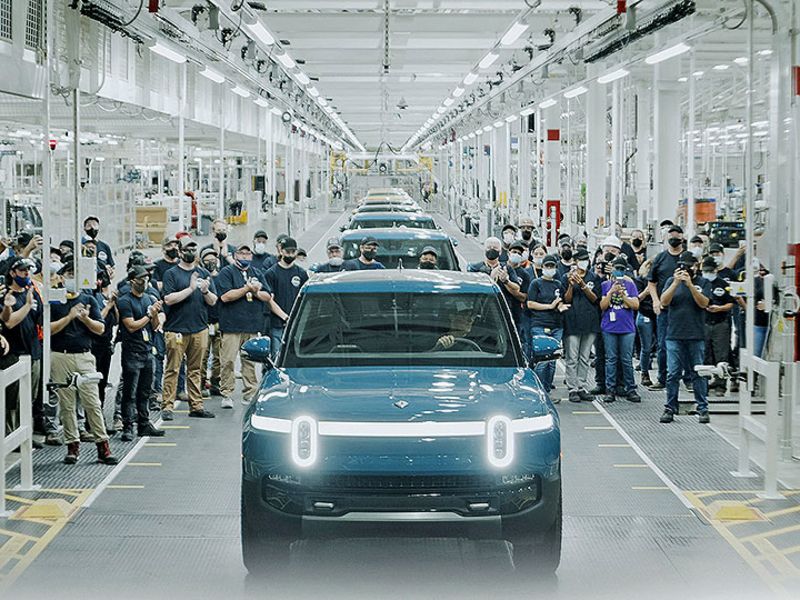
The Illinois legislature has passed a series of tax incentives for makers of electric vehicles that lawmakers hope will turn the state into an EV assembly hub.
The Illinois General Assembly passed House Bill 1769, which includes state income tax credits for EV makers and suppliers of either 75 percent to 100 percent of payroll taxes for new employees they hire for up to 15 years. It also includes tax credits for hiring construction workers and training employees, among other incentives.
“It is the intent of the General Assembly that Illinois should lead the nation in the production of electric vehicles,” the bill reads. “Illinois must aggressively adopt new business development investment tools so that Illinois is more competitive in site location decision-making for manufacturing facilities directly related to the electric vehicle industry.” The bill passed both houses of the legislature on Oct. 28 and was sent to Gov. J.B. Pritzker for his signature.
With the legislation’s passage, “Illinois is making clear that it intends to be a leading state in the burgeoning electric vehicle manufacturing industry,” Pritzker said in a statement.
The legislation is aimed at attracting new makers of EVs, batteries and other parts, as well as bolstering Illinois’ existing assembly plants, including those owned by Ford Motor Co., Stellantis and electric pickup maker Rivian.
The bill says automakers looking to set up shop for EV production would be eligible for the tax credits if they make an investment of at least $1.5 billion and create at least 500 new jobs. New parts makers would be eligible for investment of at least $300 million and the creation of 150 new jobs.
Existing manufacturers who wish to expand their facilities or convert from traditional production to EV assembly or parts making are eligible with an investment of at least $100 million and the creation of 75 new full-time jobs, among other requirements.
James Chen, Rivian’s vice president of public policy, said during Oct. 28 testimony to legislators that the automaker supported the bill, which it said would lead to more investments in the state. Crucially, he said it could help to attract lithium ion battery cell makers to the state, helping to address one of the company’s “largest constraints” it faces in its plans to expand production.
“Onshoring a domestic facility for cell manufacturing will increase reliability of supply and improve logistical efficiencies while lowering costs, ensuring that America leads in the new technology area of electric vehicle design, development and production,” Chen said.
Kristin Dziczek, senior vice president of research at the Center for Automotive Research in Ann Arbor, Mich., said tax incentives such as Illinois’ cannot make up for any “fundamental deficits” a state might have on logistics or a skilled work force. But they can serve as “the icing on the cake” for companies looking to set up shop in certain states.
“It may be nonsensical at the national level to have states bargaining against each other for these investments, but because everybody’s doing it, everybody has to do it,” she said.
She said the next few years “are critical to what the future of the industry looks like,” and Illinois and other states are looking to make sure they remain a part of it as automakers and suppliers invest in EV production.
“All this investment that’s going around is going to land somewhere, and that’s going to be the industry for decades to come,” she said.
The legislation comes at a critical juncture for Stellantis’ Belvidere, Ill., plant, which has had significant downtime this year because of the microchip shortage. The plant, which employs around 2,300 hourly workers and builds the Jeep Cherokee, had one of its shifts cut this year, impacting about 1,600 jobs.
According to a Nov. 2 estimate by AutoForecast Solutions, the Belvidere plant has had more vehicles cut from its production schedule than any assembly plant in the world, with around 121,000 units of production lost this year as a result of the chip crisis.
Automotive News has reported that production of the Dodge Charger and Challenger muscle cars could move from suburban Toronto to Belvidere in 2024 as part of a redesign that would put the muscle cars on Stellantis’ electrified STLA Large platform.
If the plant is “going to have a future, it’s going to have to have an electrified future,” said Michelle Krebs, executive analyst at Autotrader.
A spokesperson for Stellantis declined to comment on Illinois’ EV manufacturing tax incentives.
A request for comment from Ford was not returned. Ford owns an assembly plant in Chicago, which builds the Ford Explorer and Lincoln Aviator crossovers, as well as its Police Interceptor Utility.

